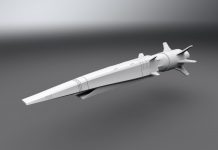
The European Union has introduced an extensive security plan focused on the strategically important Black Sea region to address growing Russian threats. Announced on Wednesday, the strategy includes establishing a “Black Sea Maritime Security Hub” designed to function as Europe’s early-warning system for the area. The hub will offer comprehensive situational awareness and facilitate information sharing across the Black Sea, employing continuous monitoring from space down to the seabed to detect potential threats and suspicious activities in real time.
According to the strategy, the hub will oversee critical maritime infrastructure such as submarine cables, offshore facilities, and energy projects involving gas and wind power along the EU’s Black Sea coastline. The plan highlights concerns over hybrid warfare tactics, including sabotage targeting marine infrastructure, which has alarmed Western officials following recent suspicious incidents in the Baltic Sea involving vessels from China and Russia.
Additional strategic priorities include clearing naval mines, safeguarding commercial shipping lanes, and countering Russia’s covert “shadow fleet”—aging oil tankers operating in secret to evade Western sanctions, a tactic also seen in North Korea’s maritime activities. During a press briefing on the new plan, Kaja Kallas, the EU’s chief diplomat, indicated that the center could also play a role in overseeing any ceasefire or peace agreements between Russia and Ukraine.
Details such as the hub’s exact location and implementation plans are still under development. The policy document states that operational needs and options will be clarified by the end of summer. The initiative currently has no dedicated funding but will draw on existing EU programs, including the €150 billion SAFE fund, which was recently approved by member states to boost defense spending through affordable loans.
Beyond the Security Hub, the strategy envisions significant improvements to regional infrastructure to enhance military mobility. This includes upgrades to ports, roads, railways, and airports surrounding the Black Sea to ensure faster deployment of forces. “These enhancements will guarantee troops arrive where and when they’re needed,” Kallas remarked, emphasizing that the measures will strengthen NATO’s deterrence capabilities. The EU also intends to tighten oversight of foreign investments in strategic assets like ports, responding to concerns over Chinese acquisitions under Beijing’s global “Belt and Road” initiative.
At the same time, the EU plans to deepen cooperation with neighboring non-EU countries such as Ukraine, Moldova, Georgia, Turkey, Armenia, and Azerbaijan, focusing on improving regional connectivity. According to the European Commission, security remains a core element of the Black Sea strategy, which also aims to promote economic development and environmental sustainability in the region.




